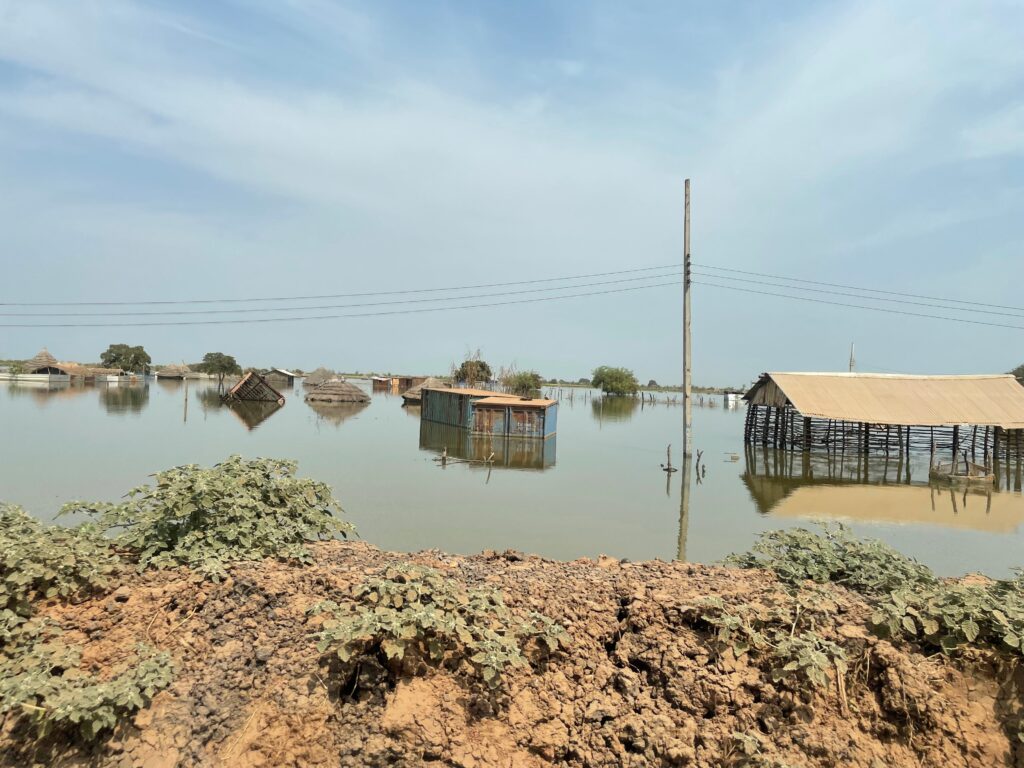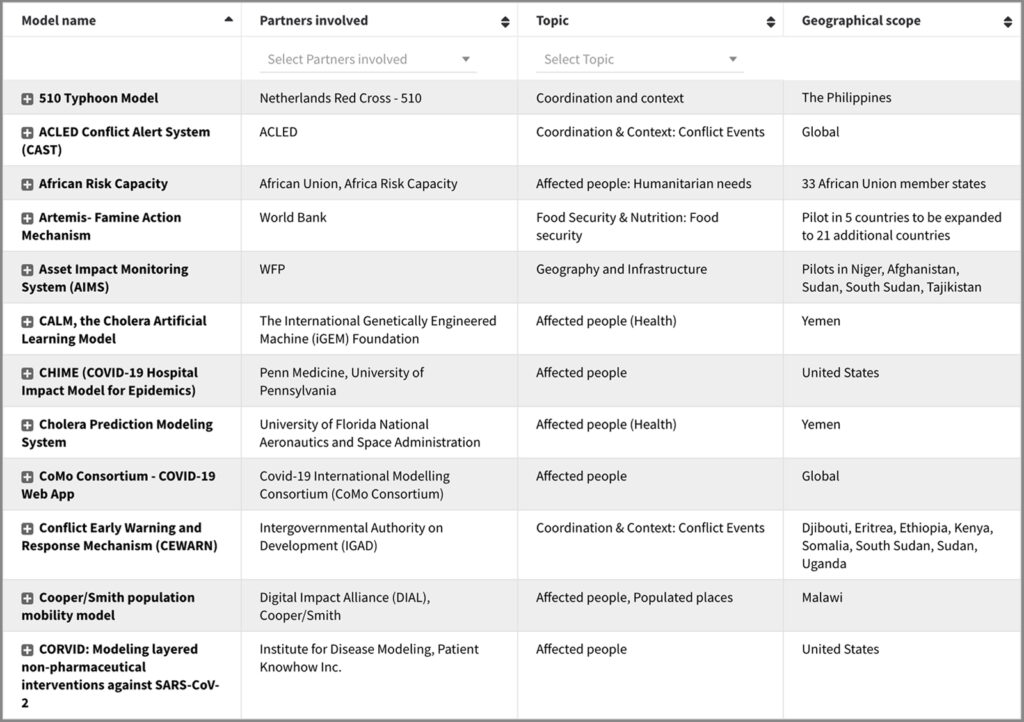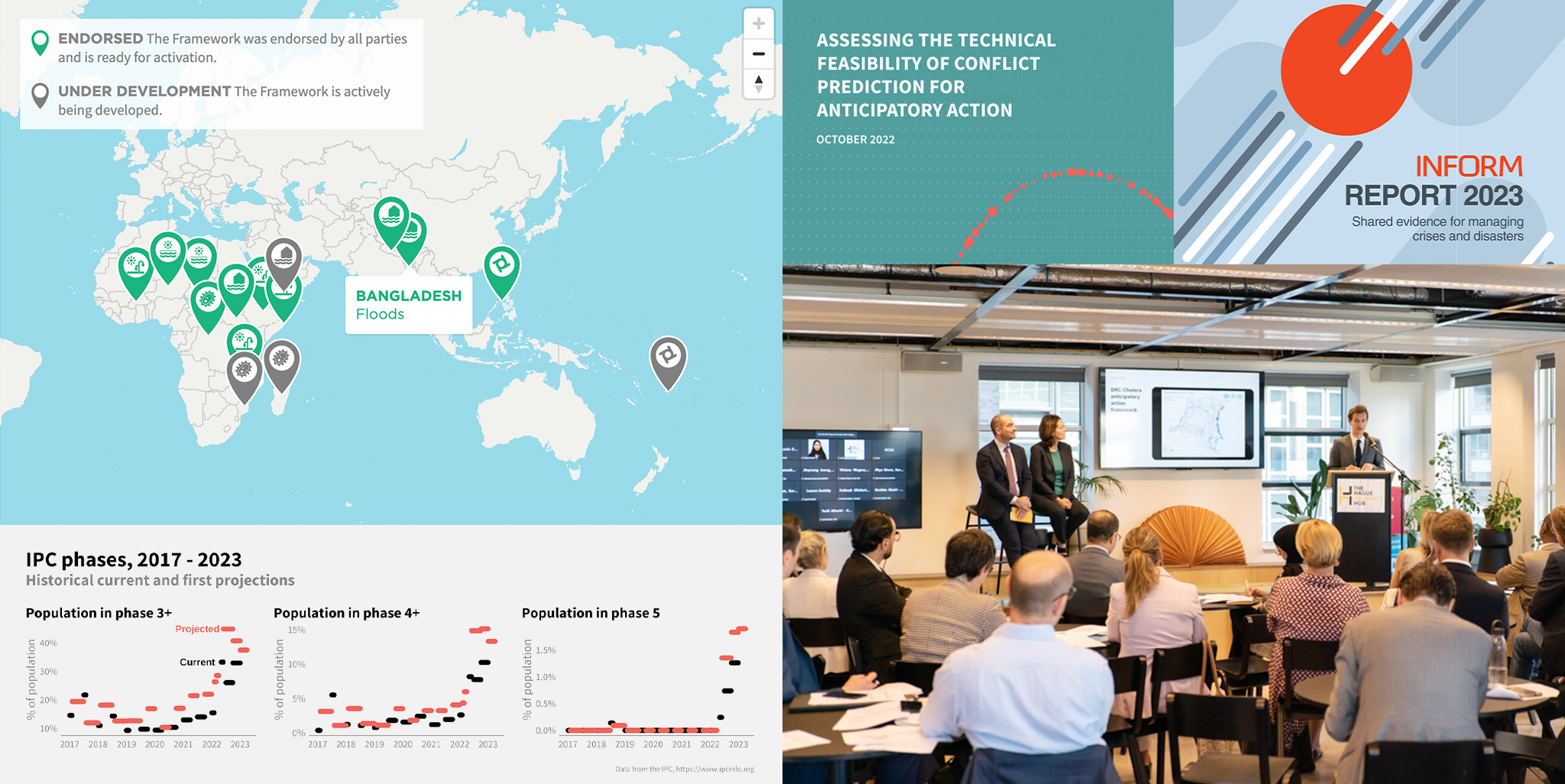The data science workstream is focused on conducting advanced analysis and creating insight to help humanitarians anticipate and respond to needs arising from shocks. This work includes assessing available models and forecasts, designing trigger mechanisms for use in anticipatory action frameworks, and providing guidance to help humanitarians make sense of climate science and technical language.
Our analysis covers:
- Weather and climate models to predict the occurrence and impacts of sudden and slow-onset hazards such as droughts, floods and storms.
- Epidemic models to better understand the main risk factors leading to major outbreaks or to project epidemic trends.
- The evolution of ongoing or upcoming humanitarian crises based on current and historical data.
- Assessing the risks and the socio-economic impacts of disasters or other shocks.
Anticipatory Action
Anticipatory action enables humanitarian organizations to get ahead of a shock and mitigate its impact on vulnerable people. OCHA’s vision is a humanitarian system that is as anticipatory as possible and only as reactive as necessary. Anticipatory action frameworks include three elements:
- A forecast-based trigger embedded in a clear decision-making process (the model)
- Pre-agreed action plans (the delivery)
- Pre-arranged finance (the money)
Since 2019, the Centre has served as the analytical engine for OCHA’s anticipatory action agenda. From 2020 to 2022, the UN Central Emergency Response Fund (CERF) released $89 million in funding based on trigger mechanisms developed by the Centre and OCHA offices.
In the coming years, we will provide technical support to ongoing pilots and new countries as they are identified, while also helping to mainstream the expertise needed within OCHA offices and with local partners. The details of our current focus countries and technical documentation can be found here.

INFORM
The Centre oversees OCHA’s engagement with INFORM, a collaboration between the Inter-Agency Standing Committee and the European Commission for developing shared, qualitative risk analysis relevant to humanitarian crises. INFORM’s work to understand risk aligns well with the Centre’s technical support for anticipatory action and is in line with the humanitarian sector’s increased recognition of the importance of responding based on risk in addition to needs.
INFORM develops several products to support decision-making across the crisis management cycle including an annual Risk Index, a Climate Change Risk Index and INFORM Severity. INFORM partners are currently working on a new product called INFORM Warning, which will monitor dynamic risks with a possible impact in a 1–12-month time horizon.
Peer Review Framework
The Centre has a Peer Review Framework to ensure models can be understood and trusted by all stakeholders in a humanitarian operation. Partners interested in submitting a model for peer review can submit a request through this form.
The Centre is looking for independent experts who can support the review of predictive models submitted by our partners. We invite experts to submit an application to become a Reviewer in the technical or ethical domain.
Visit our catalogue of predictive models to track ‘who is doing what, where and when’ in the humanitarian sector. If your organization is developing or using a predictive model, please share information in this Google form.

For any other questions or further information, please contact centrehumdata@un.org.
